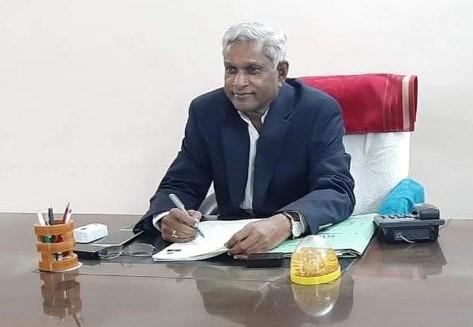Information Technology
About Department

DEPARTMENT OF INFORMATION TECHNOLOGY has been established in the year 2006, is headed by a young and efficient Professor Dr. N. Satyanarayana Under his mentorship, the department is functioning salubriously. He is having 26 years of Industrial & Teaching experience. The department also has model classroom with LCD projector for effective teaching. All the faculty are encouraged to participate in Faculty Development Programmes, workshops, publication of research papers and active involvement in R & D activity.
- The Department of Information Technology strives to impart quality technical education, ethical and moral values to meet the needs of the industry and society.
• To develop dynamic IT professional by providing quality education.
• To facilitate the students to work with modern tools and technologies.
• To mould the students by inculcating the sprit of moral and ethical values contribution to the society
A student will be able to
- Engineering Knowledge: Apply the knowledge of mathematics, science, engineering fundamentals, and an engineering specialization to the solution of complex engineering problems.
- Problem Analysis: Identify, formulate, review research literature, and analyse complex engineering problems reaching substantiated conclusions using first principles of mathematics, natural sciences, and engineering sciences.
- Design/Development of Solutions: Design solutions for complex engineering problems and design system components or processes that meet the specified needs with appropriate consideration for the public health and safety, and the cultural, societal, and environmental considerations.
- Conduct Investigations of Complex Problems: Use research-based knowledge and research methods including design of experiments, analysis and interpretation of data, and synthesis of the information to provide valid conclusions.
- Modern Tool Usage: Create, select, and apply appropriate techniques, resources, and modern engineering and IT tools including prediction and modelling to complex engineering activities with an understanding of the limitations.
- The Engineer and Society: Apply reasoning informed by the contextual knowledge to assess societal, health, safety, legal and cultural issues and the consequent responsibilities relevant to the professional engineering practice.
- Environment and Sustain ability: Understand the impact of the professional engineering solutions in societal and environmental contexts, and demonstrate the knowledge of, and need for sustainable development.
- Ethics: Apply ethical principles and commit to professional ethics and responsibilities and norms of the engineering practice.
- Individual and Team Work: Function effectively as an individual, and as a member or leader in diverse teams, and in multi-disciplinary settings.
- Communication: Communicate effectively on complex engineering activities with the engineering community and with society at large, such as, being able to comprehend and write effective reports and design documentation, make effective presentations, and give and receive clear instructions.
- Project Management and Finance: Demonstrate knowledge and understanding of the engineering and management principles and apply these to one’s own work, as a member and leader in a team, to manage projects and in multi-disciplinary environments.
- Life-long Learning: Recognize the need for, and have the preparation and ability to engage in independent and life-long learning in the broadest context of technological change.
PSO1: Analyze,design and implement IT enabled solutions to meet the industry needs using appropriate tools & techniques.
PSO2: Storing, processing, analyzing and learning from data for effective decision-making while finding solutions for problems.
PEO 1: To create and sustain a community of learning in which students acquire knowledge and apply in their concerned fields with due consideration for ethical, ecological and economic issues.
PEO 2: To provide knowledge-based services so as to meet the needs of the society and industry.
PEO 3: To make the students understand, design and implement the concepts in multiple arenas.
PEO 4: To educate the students in disseminating the research findings with good soft skills so as to become successful entrepreneurs.
